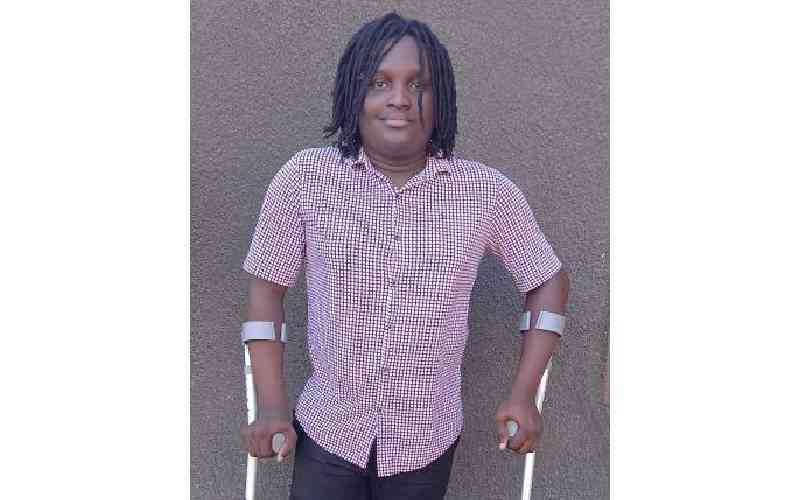
For Humphrey Haj, the last born in a family of five, life as a child was normal.
"I would play a lot, and nothing felt different other than the occasional swellings from bumps to my head that would take longer to go down," Humphrey says.
"One evening, in 2007 when I was about 7 years old, I cut my thumb as I was trying to pluck the pages from a calendar that I needed to use to cover my books. My thumb bled overnight despite the gauze and bandage my mother put over it," he narrates. By morning, the cut was pale but healed.
Facts First
Unlock bold, fearless reporting, exclusive stories, investigations, and in-depth analysis with The Standard INSiDER subscription.
Already have an account? Login
 The Standard Group Plc is a multi-media organization with investments in media
platforms spanning newspaper print
operations, television, radio broadcasting, digital and online services. The
Standard Group is recognized as a
leading multi-media house in Kenya with a key influence in matters of national
and international interest.
The Standard Group Plc is a multi-media organization with investments in media
platforms spanning newspaper print
operations, television, radio broadcasting, digital and online services. The
Standard Group is recognized as a
leading multi-media house in Kenya with a key influence in matters of national
and international interest.











